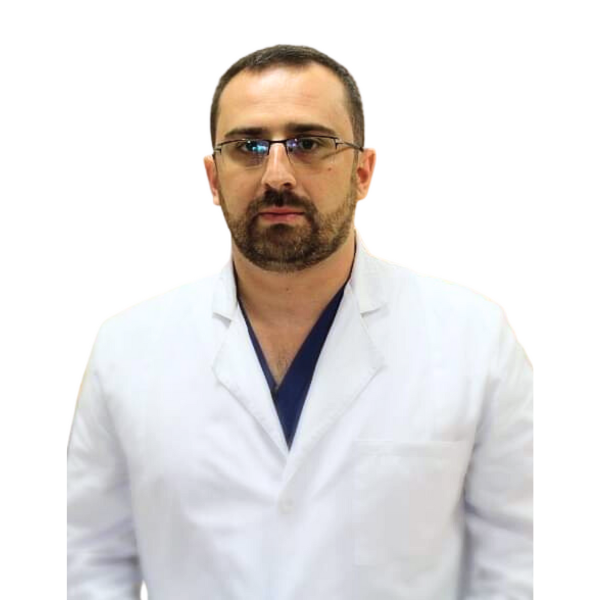Comprehensive Medical Services in Batumi: Your Trusted Healthcare Provider
At Concierge Medical Center Batumi, we pride ourselves on providing a wide range of specialized medical services tailored to meet the needs of our diverse clientele. Whether you are seeking consultation for a common ailment, preventive care, or a specialized treatment, our team of experienced healthcare professionals is here to offer you the highest standard of care.
One of the key services we offer is gastroenterology, which plays a vital role in diagnosing and treating digestive disorders. If you are experiencing symptoms such as abdominal pain, bloating, or irregular bowel movements, a visit to our gastroenterologist in Batumi can help identify the underlying issue and provide effective treatment options. Gastroenterology in Batumi is an essential part of our healthcare services, as we understand the importance of digestive health in overall well-being.
Why Choose Our Gastroenterologist in Batumi?
Our gastroenterologist in Batumi specializes in diagnosing and treating a variety of conditions that affect the digestive system. Whether you are suffering from conditions like gastritis, irritable bowel syndrome, or gastroesophageal reflux disease (GERD), our expert team is ready to provide personalized care and treatment plans to help improve your health. With state-of-the-art diagnostic tools, including endoscopy and colonoscopy, we ensure that you receive accurate diagnoses and effective treatments tailored to your needs.
At Concierge Medical Center Batumi, we understand that gastrointestinal issues can significantly impact your quality of life. That’s why our gastroenterology services in Batumi are designed to provide comprehensive care that addresses both the symptoms and the root causes of your condition.
Our Comprehensive Range of Medical Services
In addition to our gastroenterology services in Batumi, we offer a full spectrum of medical treatments and consultations to address your health concerns:
- Cardiology Services in Batumi: Our cardiologist in Batumi provides expert care for heart disease, hypertension, and other cardiovascular conditions.
- Dermatology Services in Batumi: If you are dealing with skin issues, our dermatologist in Batumi offers treatments for acne, eczema, and other common dermatological concerns.
- Neurology Services in Batumi: Our neurologist in Batumi specializes in diagnosing and treating conditions such as headaches, epilepsy, and other neurological disorders.
- Pediatric Services in Batumi: Our pediatrician in Batumi offers a wide range of healthcare services for children, from regular check-ups to more specialized treatments.
With a dedicated team of doctors, specialists, and medical staff, we are committed to providing exceptional care for all our patients. Our comprehensive approach ensures that you receive timely treatment, accurate diagnoses, and ongoing support in managing your health.
Preventive Healthcare and Wellness
At Concierge Medical Center Batumi, we also emphasize the importance of preventive healthcare. Regular check-ups, health screenings, and lifestyle advice play a crucial role in preventing serious health conditions and maintaining your well-being. Whether you need an annual health assessment or guidance on living a healthier lifestyle, our team is here to help.
By offering services that cover a broad range of specialties, including gastroenterology, cardiology, dermatology, and more, we aim to provide a holistic approach to healthcare. We believe that understanding your health and taking preventive measures is just as important as treating illnesses.
Visit Us Today
If you are looking for high-quality, compassionate healthcare services in Batumi, look no further than Concierge Medical Center. Our gastroenterology services in Batumi are just one part of the comprehensive medical care we offer. We are here to help you achieve and maintain optimal health with personalized care and support from a team of trusted professionals.
Visit us today to learn more about our services and how we can assist you on your healthcare journey. Whether you’re in need of a gastroenterologist in Batumi or any other medical consultation, we are here to provide expert care with a focus on your well-being.
Key Keywords Included:
- Gastroenterologist in Batumi
- Gastroenterology in Batumi
- Gastroenterology services in Batumi
- Cardiologist in Batumi
- Dermatologist in Batumi
- Neurologist in Batumi
- Pediatrician in Batumi
In conclusion, Concierge Medical Center Batumi offers a comprehensive range of medical services designed to meet the diverse needs of our patients. From specialized care in gastroenterology to other vital medical fields like cardiology, dermatology, and pediatrics, our team of experienced professionals is dedicated to delivering high-quality healthcare. Whether you are seeking treatment for a specific condition or simply looking for preventive care, we are committed to providing personalized, patient-centered services that focus on your well-being. Our gastroenterologist in Batumi is here to help diagnose and treat digestive disorders, ensuring that you receive the best possible care. We strive to make healthcare accessible, efficient, and compassionate for everyone. With a focus on both treatment and prevention, Concierge Medical Center Batumi is your trusted partner in maintaining a healthy and fulfilling life. Reach out to us today to experience exceptional medical care tailored to your needs.





















